How Tinder and Hinge owner Match Group grew to have the country's biggest monopoly on online dating - but let Bumble get away

- Match Group owns Tinder, OkCupid, and every other big online dating site in the US — except Bumble.
- Bumble's CEO, an ex-Tinder executive, sued Match Group's parent company for discrimination in 2014.
- Here's how Match Group went from a failing dating site for Boomers to the country's largest online dating conglomerate.
Online dating can be messy. The companies that run online dating can be messier.
Match Group, which started as one lonely Stanford Business School graduate's attempt to build a less embarrassing way to find love online in the '90s, has turned into a titan that owns nearly every US dating site.
College campus mainstay Tinder, serious relationship finder OkCupid, and Christian teen dating site Upward all belong to Match Group. Billionaire Barry Diller's holding group IAC founded Match Group before it spun out the dating conglomerate last year.
Bumble, however, is conspicuously absent from Match's portfolio. Bumble's CEO, ex-Tinder executive Whitney Wolfe Herd, has a toxic history with the online dating group.
Ahead of Bumble's entrance into Nasdaq, here's the decades-long history into how Match Group became the owner of practically every online dating space in the country.
Match Group was founded in February 2009 after the holding company IAC decided to bundle all dating sites it owned. IAC's initial purchase of Match.com dates back to the 1990s.

Stanford Business School graduate Gary Kremen founded Match.com in 1995 to design a meeting place for older professionals looking for long-term relationships, SF Gate reported.
But Kremen left Match.com in 1996 after butting heads with the firm's investors. He walked away with just $50,000, Insider reported.
Ticketmaster Inc., which had recently been bought out by USA Networks Inc. (later renamed IAC), bought Match.com in 1999 for $50 million. Cendant Corporation bought the matchmaking upstart a year earlier for $6 million, per SF Gate.
During the 2000s, IAC chairman Barry Diller turned Match.com into one of the most successful online dating companies in the US.
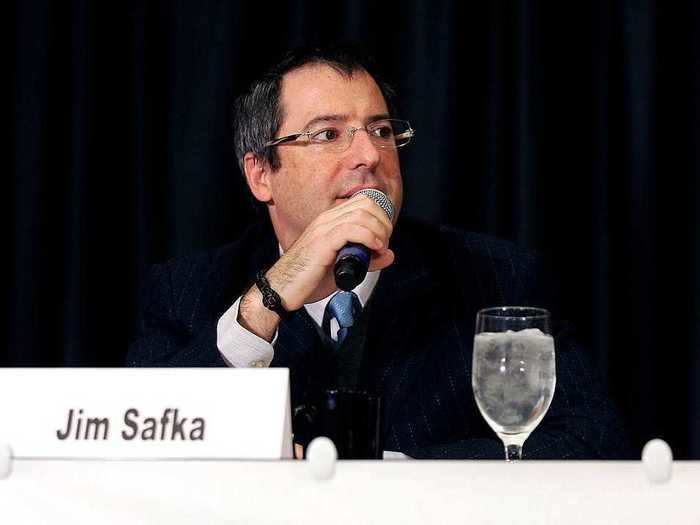
Jim Safka, a former ETrade and AT&T executive, took over as Match.com CEO in 2004 after years of stalled growth.
Match had grow its subscriber base by 10% just a few months after Safka joined, The Wall Street Journal reported in 2007, partially due to his emphasis on marketing to older demographics. Revenue increased 68% between 2003 and 2006, going from $185.3 million to $311.2 million, D Magazine reported.
During Safka's leadership, Match became the one of best-performing companies in Diller's portfolio, per D Magazine.
Barry Diller decided to form Match Group after breaking up IAC into five different companies in 2008.
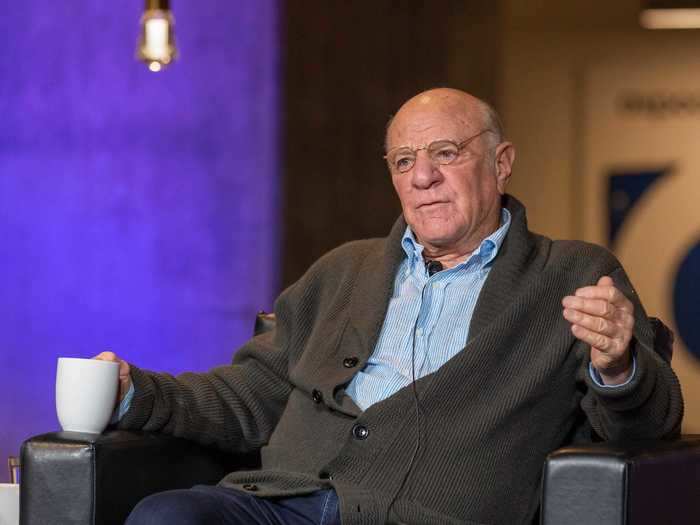
Diller won a court battle to break up IAC into five companies: the Home Shopping Network; Ticketmaster; time-share company Interval; LendingTree; and IAC, which would include Match.com and Ask.com, per the NYT.
In February 2009, Match Group officially formed, as IAC set its sights on more dating platforms.
Diller acquired some of the hottest online dating sites in the years following his decision to splinter off Match Group.
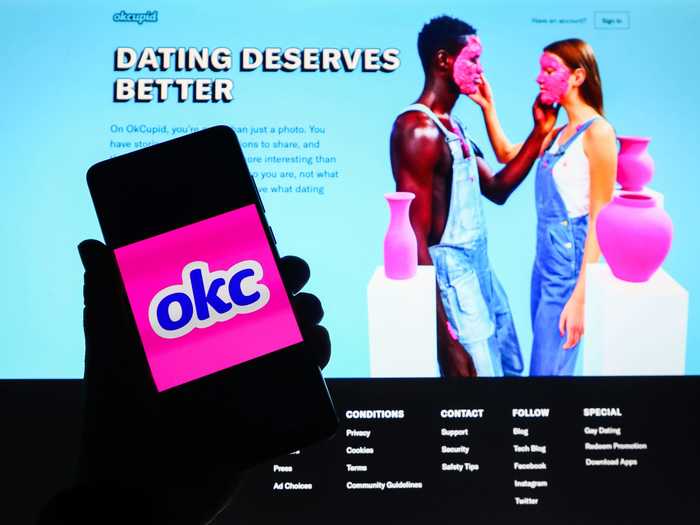
IAC acquired People Media for $80 million in cash in July 2009, months after Match Group's inception. Tech Crunch reported the deal included 27 targeted dating sites, including BlackPeopleMeet.com and SingleParentMeet.com, with a combined 255,000 subscribers.
In 2011, IAC's Match Group announced another blockbuster acquisition of OkCupid for $50 million. OkCupid differed from other dating sites at the time by skipping the subscription-model and offering services free of charge. OkCupid, geared toward younger people, raised $6 million in funding prior to its acquisition, per TechCrunch.
Today, Match Group's portfolio of apps includes:
- Match, the company's original app, which is available in 25 countries
- Tinder, which lets users swipe through potential matches
- Hinge, an app focused on finding relationships
- POF (Plenty of Fish), one of the largest dating sites in Match's portfolio and available in over 20 countries
- OkCupid, which asks users multiple choice questions to determine compatibility
- OurTime, a dating app for singles over 50
- Meetic, which serves European countries
- Pairs, which serves Asian countries
- Upward, a Christian dating app for Gen Z and millennials
According to data from mobile analyst firm Sensor Tower, as of 2014, Match Group's portfolio of apps saw an estimated 56 million installs globally. In the first three quarters of 2020, Match Group reached 82 million installs worldwide, an increase of roughly 46%.
The road to attaining what is essentially a monopoly on dating hasn't been smooth, and it began with the birth of Tinder.
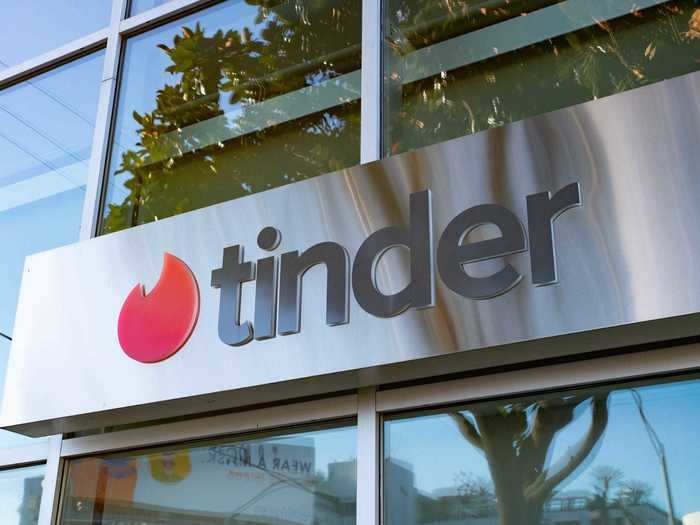
Match Group owns a sizable stake in the multibillion-dollar dating app industry, Vox reported, with a report from Apptopia estimating the company has cornered about 60% of the dating app market with its suite of apps.
Match's acquisition of Tinder fueled its online dating dominance. In 2017, The Wall Street Journal reported Tinder saw a 90% spike in average subscribers year-over-year. A year later, the company doubled its revenue to $805 million.
Match Group has evaded antitrust investigation due in part to lax oversight by the Department of Justice and the Federal Trade Commission, Evan Gilbert wrote in the NYU Law Review in 2019.
Monopolies are also "hard to prove," and the FTC may not view Match Group as a big threat, Christopher Sagers, a professor at the Cleveland-Marshall College of Law, told Yahoo Finance.
In January 2012, Hatch Labs, a startup "sandbox" launched by IAC to incubate mobile apps, hired entrepreneur Sean Rad as general manager. During a Hatch Labs hackathon that February, Rad, who had been considering creating a dating product, worked with developer Joe Muñoz to create the prototype for Tinder.

Jonathan Badeen and Chris Gulczynski were hired soon after to help with front-end and design, respectively. Whitney Wolfe Herd was hired by Hatch Labs in May of that year and Justin Mateen was brought in as a contractor. The app was originally called Match Box.
By August 2012, what had been renamed "Tinder" launched on Apple's App Store. In a few months, Tinder had made a million matches, mainly as a result of marketing heavily to fraternities and sororities on college campuses.
By April 2013, Tinder officially incorporated, with Rad, Badeen, and Mateen considered the company's cofounders. Rad served as CEO.
IAC later purchased another chunk of Tinder for a reported $50 million from early Facebook employee and venture capitalist Chamath Palihapitiya.
In 2014, Wolfe Herd, then Tinder's vice president of marketing, sued Tinder and IAC for sexual harassment and discrimination. Wolfe Herd alleged that Mateen, her former boyfriend, harassed her while she worked for the company.
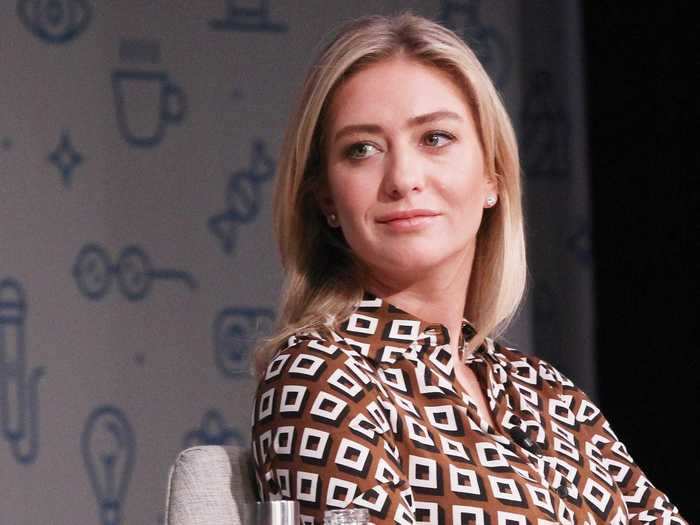
Wolfe Herd alleged that she had held the title of Tinder cofounder, which was later revoked. She also claimed in her suit that Mateen verbally harassed her following their breakup, and that Rad and Match.com CEO Sam Yagan did nothing about. Eventually, Wolfe Herd resigned.
After text messages between Wolfe Herd and Mateen were published as part of the suit, Mateen was suspended and ultimately resigned. In November 2014, the lawsuit was settled for an undisclosed sum, but reports from the time pegged it at "just over" $1 million.
Rad also decided to step down in the wake of the scandal and so IAC could find a more experienced CEO.
By 2015, Rad was back at the helm of Tinder, just as Match Group went public.
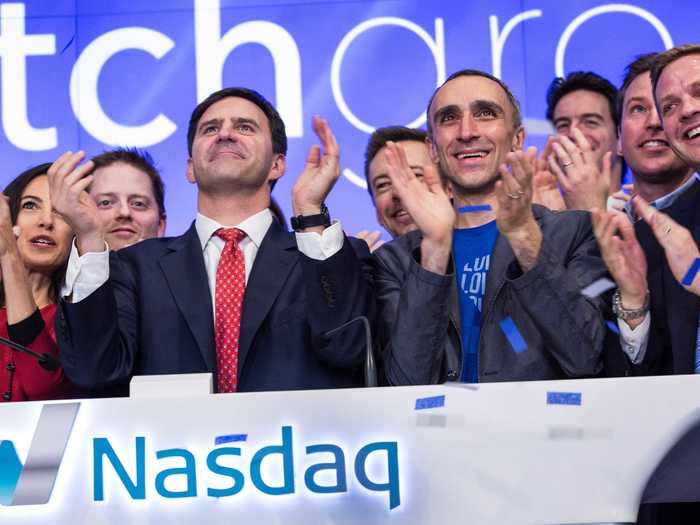
Match Group's stock opened at $12 per share and the company raised roughly $400 million, on the low end of what it hoped to raise with the initial public offering.
The IPO came shortly after a bizarre interview with Rad in which he discussed his sex life. The article also mentioned Tinder's number of users, which Rad wasn't authorized to discuss on the eve of the IPO. (A quiet period prior to an IPO bars executives from publicly discussing certain matters.)
Match Group had to file an update with the Securities and Exchange Commission to clear up any confusion about Rad's interview.
One year later, Rad became chairman of Tinder and Greg Blatt became Tinder's CEO while simultaneously serving as CEO and chairman of Match Group. By 2017, Tinder had merged under the Match Group umbrella.
In 2018, Rad and nine other Tinder employees sued IAC, claiming IAC purposely undervalued the startup. The lawsuit sought $2 billion in damages.

The group, which included Badeen and Mateen, filed suit against both IAC and Match Group alleging that a lowball valuation was used to reduce the value of early employees' and founders' stock options.
When IAC merged Tinder with Match Group in 2017, the suit argued, Tinder employees' options in the rapidly growing app were "stripped away," leaving them with options in Match instead, which was less valuable.
The suit also argued that Blatt valued Tinder far lower than Tinder's cofounders believed it to be worth. Additionally, Rosette Pambakian, Tinder's vice president of marketing and communications, alleged that Blatt had groped her at a Tinder holiday party in 2016.
IAC sought to dismiss the suit, which a New York state appeals court rejected in 2019. IAC also counter-sued Rad for $400 million, alleging he had improperly recorded conversations with his superiors.
Starting in 2017, Match Group set its sights on another dating upstart: Hinge, an app focused on finding long-term connections.
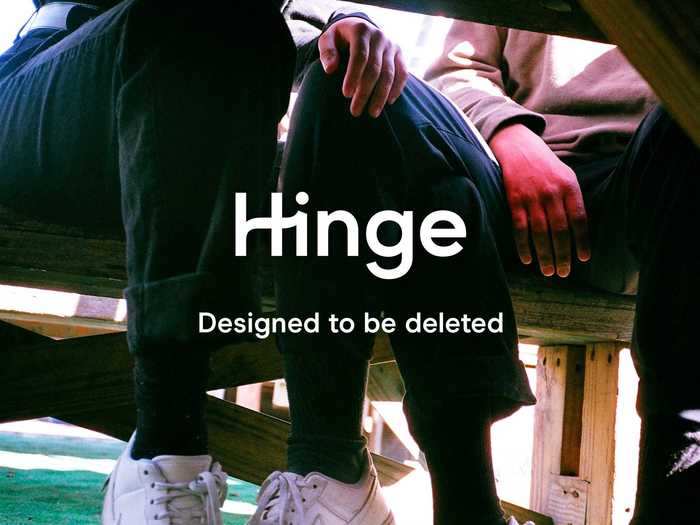
Match took a share in the app that September, and in June 2018, acquired a 51% stake in the company.
From Match's initial investment to the following year, Hinge saw a 400% increase in users, particularly on the East Coast of the US. Hinge, which had been described as the "anti-Tinder," removed the swipe feature from its app and shifted to more fleshed-out user profiles with a goal of helping users find relationships.
By December 2019, IAC announced it was spinning off its stake in Match Group. "We've long said IAC is the 'anti-conglomerate' - we're not empire builders," Barry Diller, IAC's chairman, said in a statement at the time.
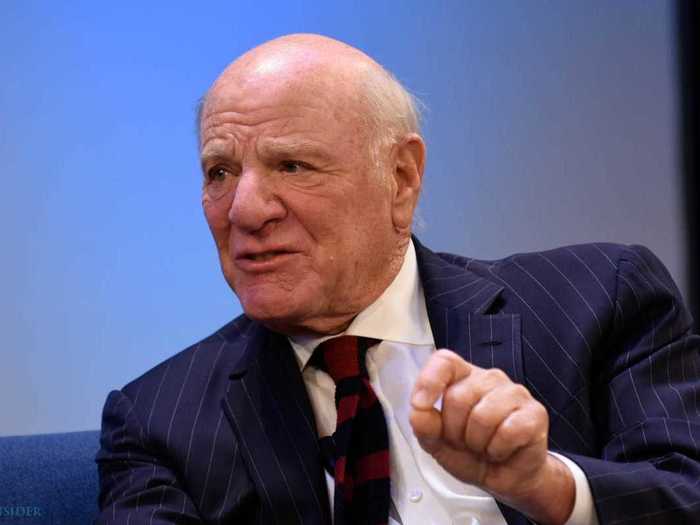
"We've always separated out our businesses as they've grown in scale and maturity and soon Match Group, as the seventh spin-off, will join an impressive group of IAC progeny collectively worth $58 billion today," Diller told CNBC in a statement.
By July 2020, IAC and Match Group completed their separation. IAC said that given Match's market capitalization, it was the largest company IAC has separated in its history.
Match Group introduced four new board members, including actor Ryan Reynolds and Rupert Murdoch's third wife, Wendi.
Match Group CEO of 14 years, Mandy Ginsberg, stepped down a year later.
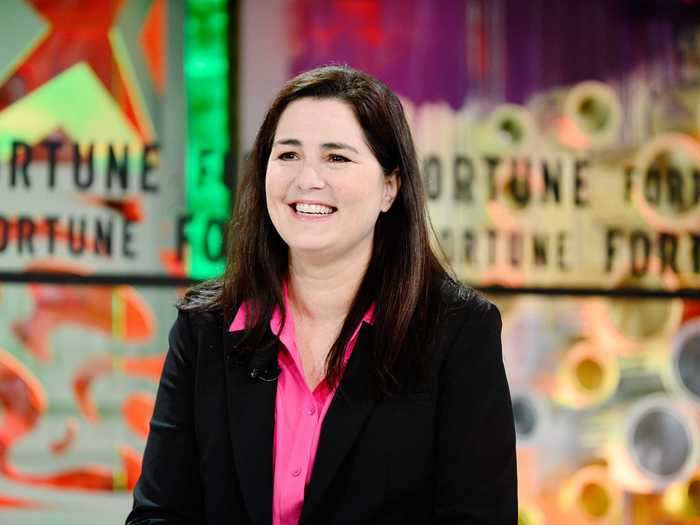
Ginsberg said in a letter to employees she left for personal reasons, including undergoing a preventative double mastectomy and witnessing a tornado demolish her Dallas home.
Former Tinder COO Shar Dubey took over for Ginsberg, and became one of few women of color in chief executive roles at Fortune 500 firms.
Meanwhile, Wolfe Herd had been building a company of her own: Bumble, a dating app aiming to create a comfortable and empowering online dating space for women.
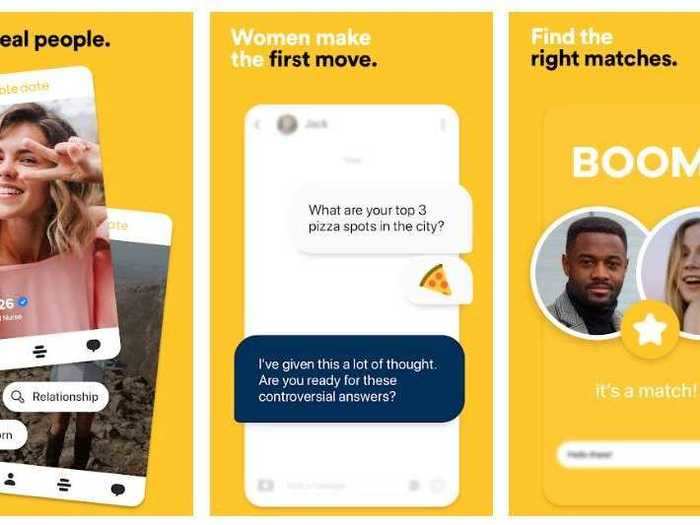
Wolfe Herd was reluctant to build another dating app after her experience at Tinder, but Andrey Andreev, the cofounder of dating app Badoo, convinced her. Along with two former Tinder employees — cofounder Chris Gulzcynski and former vice president of design Sarah Mick — they launched Bumble in December 2014.
Andreev made an initial investment of $10 million and became the majority owner with a 79% stake. Wolfe Herd became CEO with a 20% stake in Bumble, according to Forbes.
Bumble's basic mechanisms worked like Tinder's: Users could swipe right on someone they were interested in and swipe left on someone they weren't, with one catch — only women had the ability to make contact first.
Wolfe Herd told Insider in 2015 that she wanted the app to empower women and feel more modern overall.
By the end of 2017, two years after launching, Bumble had amassed more than 22 million users. Match Group came calling.
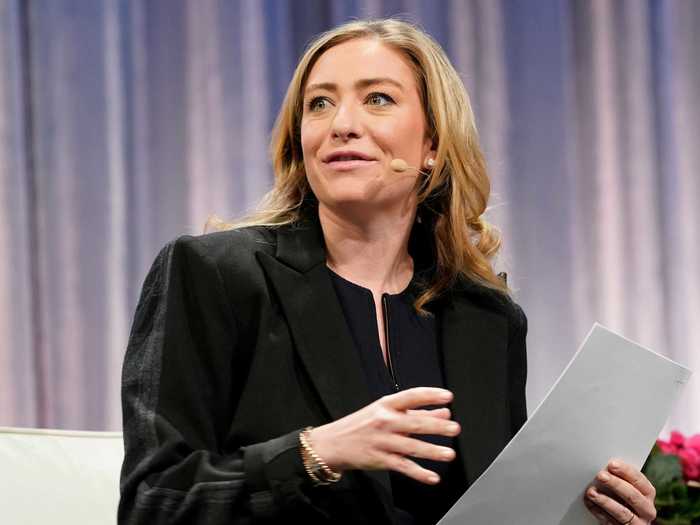
According to a report from Forbes' Clare O'Connor, Match Group offered $450 million for the startup sometime around June 2017, but Bumble rejected the offer.
The talks reportedly continued after that: in November of that year, both Forbes and TechCrunch reported that Match Group was still trying to buy Bumble at a $1 billion valuation.
But the spurned acquisition offer was the beginning of a soured relationship between Match Group and Tinder. In 2018, the companies sued each other, launching a heated legal battle that lasted for over two years.
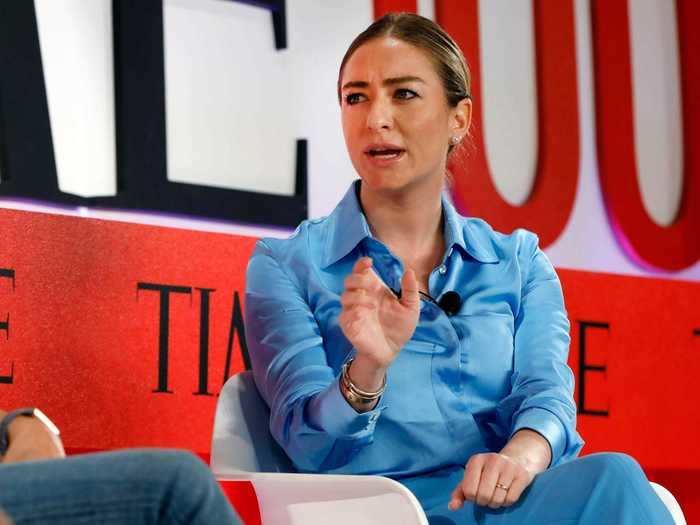
In March 2018, Match Group filed a patent infringement lawsuit against Bumble, accusing the startup of copying Tinder's technology, particularly its design and the process for matching users. The suit also alleged that Gulzcynski and Mick stole confidential information from Tinder.
A few weeks later, Bumble filed a $400 million lawsuit of its own, accusing Tinder of copying its core feature that required women to make the first move, which Match Group CEO Mandy Ginsberg had previously said Tinder was planning to introduce.
Bumble claimed in its suit that Match Group used the acquisition talks to improperly obtain proprietary information about the company and used the lawsuit to make Bumble look less attractive to other potential buyers.
The two companies reportedly tried, unsuccessfully, to settle. In September of that year, Bumble announced it was taking Match Group to court as well as preparing for an initial public offering.
In June 2020, Match Group and Bumble announced that they had settled all litigation between them. Details of the settlement weren't disclosed, but both companies said they were "pleased with the amicable resolution."
But Bumble has remained Match Group's biggest competitor and has become a multibillion-dollar behemoth in its own right.

In late 2019, after reports of Badoo's history of drug-fueled parties and sexist behavior, Badoo founder Andreev sold his entire stake in MagicLab, the umbrella company for Badoo and Bumble, to the Blackstone Group. The deal valued the company at $3 billion.
By July 2020, MagicLab was renamed Bumble and Wolfe Herd was named CEO of the whole company, overseeing 750 employees worldwide. Wolfe Herd has retained a 19% stake in the company.
In January 2021, Bumble filed to go public, revealing that it now has 42 million monthly users. Bloomberg reported that the company could seek a valuation of $6 billion to $8 billion.
Now, as the pandemic continues to keep much of the world locked down, singles are flocking to dating apps, helping fuel the growth of both Bumble and Match Group's suite of apps.
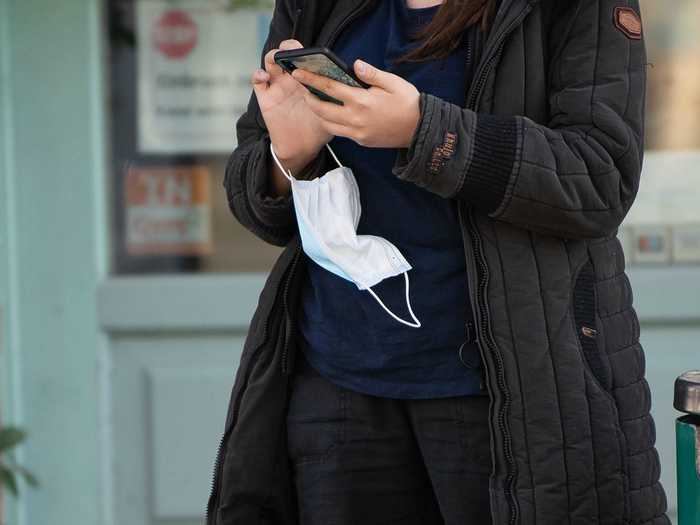
Match Group reported better-than-expected third-quarter earnings last November, particularly when it came to Tinder: the company saw revenue growth and an increase in subscribers in the third quarter, despite the pandemic.
"Tinder remains the highest grossing app in the Lifestyle category in ~100 countries and has grown direct revenue from essentially zero in 2014 to an expected nearly $1.4 billion this year," the company wrote in its letter to shareholders.
Match Group also reported in its third-quarter earnings that Hinge subscriptions were up 82% last year and revenue had grown more than 200% year-over-year.
For Bumble's part, Wolfe Herd told CNN's Poppy Harlow on the "Boss Files" podcast that there have been some advantages to dating app users during the pandemic.
"More genuine connections are forming out of this, and people are really, you know, being secure in who they're meeting before that eventual physical meet-up ever begins," Wolfe Herd said.
READ MORE ARTICLES ON
Popular Right Now
Advertisement